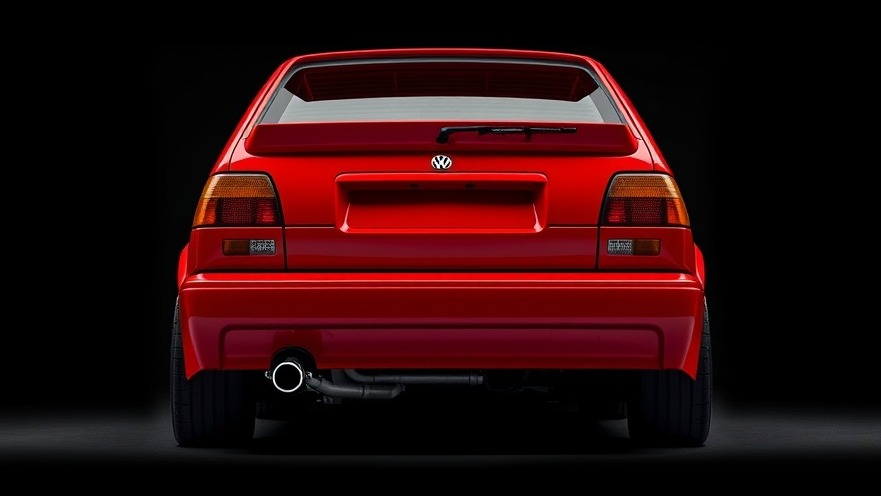
Understanding the Importance of a Limited Slip Differential
Upgrading your vehicle's differential can significantly improve its performance, especially when it comes to handling and traction. A limited slip differential (LSD) is a game-changer for anyone looking to maximize their driving experience, particularly if they own a high-powered vehicle like the MK4 R32 or TT. Unlike an open differential that allows wheels to spin at different speeds, an LSD couples the wheels together, providing better traction when accelerating and cornering.
In The Ultimate Rear LSD Upgrade for a Turbo MK4 R32, the discussion dives into the installation process of a critical performance component, exploring key insights that sparked deeper analysis on our end.
What to Expect During the Installation Process
In the recent tutorial titled The Ultimate Rear LSD Upgrade for a Turbo MK4 R32, the installation of the Wave Track Limited Slip Differential was discussed extensively. While DIY enthusiasts might be tempted to tackle this job in-car, it's recommended to perform this upgrade on a bench. This provides easier access to all the required components and prevents unnecessary mishaps during the installation.
To ensure a smooth process, it's crucial to gather the necessary tools, which include a 17 mm Allen wrench, seal removers, and a torque wrench, among others. Complying with the installation manual and taking measurements diligently can prevent common installation errors that could damage the new differential, as a hidden snap ring can cause substantial trouble if overlooked.
The Benefits of a Limited Slip Differential for Performance Cars
A limited slip differential is especially beneficial for performance cars that generate significant horsepower. In the case of the MK4 R32, achieving around 500 horsepower necessitates a reliable means to transfer that power to the ground effectively. The LSD allows both rear wheels to turn in unison under certain conditions, which translates to improved stability during sharp turns and higher acceleration rates. This modification is not just for form but for function, enhancing overall driving dynamics.
Future Expectations: Transforming Your Driving Experience
Once the installation is complete, drivers can expect a noticeable difference in their vehicle's performance. LSDs are specifically designed to enhance cornering stability and reduce wheel spin, making them ideal for track enthusiasts. If done correctly, driving with a limited slip differential will open up a new world of control and responsiveness, making your driving experience far more exhilarating.
Common Misconceptions About Limited Slip Differentials
Some car owners might hesitate to invest in a limited slip differential due to misunderstandings about their complexity and necessity. However, many enthusiasts find that for vehicles that already possess a good amount of horsepower, an LSD transforms their driving style. This modification is appropriate for both daily drivers and weekend warriors, providing engaging and safer driving experiences. Failing to adapt to modern driving demands can result in driving experience that feels outdated or inefficient.
Making the Decision: Is an LSD Right for You?
Ultimately, if you're considering the upgrade to a limited slip differential, it's essential to assess your vehicle's current performance and your driving style. For average drivers whose cars are not heavily modified, investing over a thousand dollars might not yield noticeable improvements. But for those with high-powered setups, this upgrade is a worthy investment that can transform driving from mundane to extraordinary. Additionally, ensure that you maintain your LSD with the proper fluid and follow through with regular checks to prolong its life and effectiveness.
Final Thoughts: Take Action for Enhanced Driving
After delving into the ins and outs of a limited slip differential's installation and functionality, it becomes clear how critical this upgrade can be for those looking to enhance their vehicle's capabilities. If you aspire to improve your car's performance, consider investing in a limited slip differential. This choice can lead to a more enjoyable driving experience—one that feels more intuitive and responsive. For more guidance and detailed steps, seeking repair manuals and professional help is always encouraged. With the right tools and information at your disposal, taking this leap in automotive technology could redefine your relationship with your vehicle.
 Add Row
Add Row  Add
Add 




Write A Comment